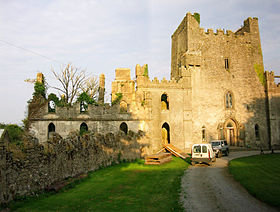
The story of four close friends, who studied in the same school up to Senior High School.
At that time, there was only one luxury hotel in the city.
After the O-Level exam, they decided that they should go to that hotel and have some tea and breakfast. The four of them could hardly collect twenty dollars. It was a Sunday and all four of them reached the hotel by bicycle at nine-thirty.
Tan, Lim, Wong, and Mah started talking while having breakfast and tea. All four of them decided unanimously, that they would meet again after 50 years in the same hotel on 1st of May.
“Till then we all should work very hard. It will be interesting to see how much progress has been made after 50 years,” they discussed.
It was also decided that the last one to reach the hotel then, would have to pay the bill for that day.
Ho, the waiter who served them tea and snacks, was listening to all this. He said, “If I stay here till then, I’ll be waiting for you all.”
All four separated for further education.
Tan had left the city after his father got relocated, Lim went for further studies, and Wong and Mah got admission to different colleges in the country.
Eventually, Wong also left the country.
Days, months, and years passed.
In fifty years, the city underwent a radical change. The population of the city increased, and roads, flyovers, and malls changed the appearance of the city.
Now that hotel had become a five-star hotel, the waiter Ho had now become Mr. Ho, the owner of this hotel.
Fifty years later, on the scheduled date, May the 1st, at noon, a luxury car came to the door of the hotel.
Tan got out of the car and started walking towards the porch. He now owns three jewellery stores.
Tan reached the hotel owner Mr. Ho, and both of them kept looking at each other. Mr. Ho said, “Sir, Mr Mah had booked a table for you a month back.”
Tan was heartily happy that he was the first of the four, so he wouldn’t have to pay the bill that day and would make fun of his friends for it.
After a while, Lim arrived. Lim has become a well-known contractor of the city. For his age, he now looked like an old senior citizen.
Now, they both were talking and waiting for the other friends. The third friend, Wong also came in half an hour. On talking to him, both of them came to know that Wong was now a businessman.
The three friends kept looking towards the door again and again, wondering when Mah would come.
Soon, Mr. Ho came to them and said, “A message has come from Mah. He’s asked you all to start with snacks, and he’ll join you.”
All three were happy to meet each other after fifty years, laughing and joking for hours, but Mah did not come.
Mr. Ho said, “Mah has sent another message, you three should order your favourites from the menu and start eating.”
The food was ordered, but even after they had finished eating, Mah did not show up. When the three asked for the bill, they were told that the bill has been paid online.
At eight o’clock in the evening, a young man got down from the car and with a heavy heart reached the three friends preparing to leave the hotel. The three couldn’t take their eyes off the man.
The young man said, “I am your friend’s son Jackie Mah, my father’s name is Mah. Dad had told me about your get together today, he was waiting for this day, but he passed away last month due to a long illness…
He had asked me to come late because if I had come early, it would have made you all sad. Dad had said, “My friends will not laugh if they come to know that I am not in this world, then they would lose the joy of meeting each other… I don’t want that.”
That’s why he ordered me to come late. He also asked me to hug all of you on his behalf.” Jackie Mah spread both his hands with watery eyes.
Everyone around was eagerly watching this scene, they thought they had seen this young man somewhere.
Jackie Mah said, “My father became a lecturer and gave me a good education. Today, I am the Governor of this city…”
Everyone was amazed, Mr. Ho said, “Now, it won’t be after fifty years, but we will meet in our hotel every month, and each time there will be a grand party from my side….”
*Friends, keep meeting your loved ones, don’t wait for any opportunity to meet someone, we never know when it’s time to get separated and we may never get to meet again…*
The journey of life is also like a train journey. When someone’s station comes, they will have to be dropped off at that moment. Only few blurry memories would remain!
*Stay with family, feel the joys of being alive..*
Keep meeting your loved ones, not only on special days, but also on other occasions, and sometimes without any reason too. May the tree of our relationships be nourished by the water of love, for whom we do not have to wait for any reason or opportunity to meet.
Dear friends, when you are reading this story, if someone comes to your mind, do talk to them for a few minutes, that precious minutes.
*”We must take time for the people around us and enjoy the beauty of life.” How true it is!
#CommissionsEarned


